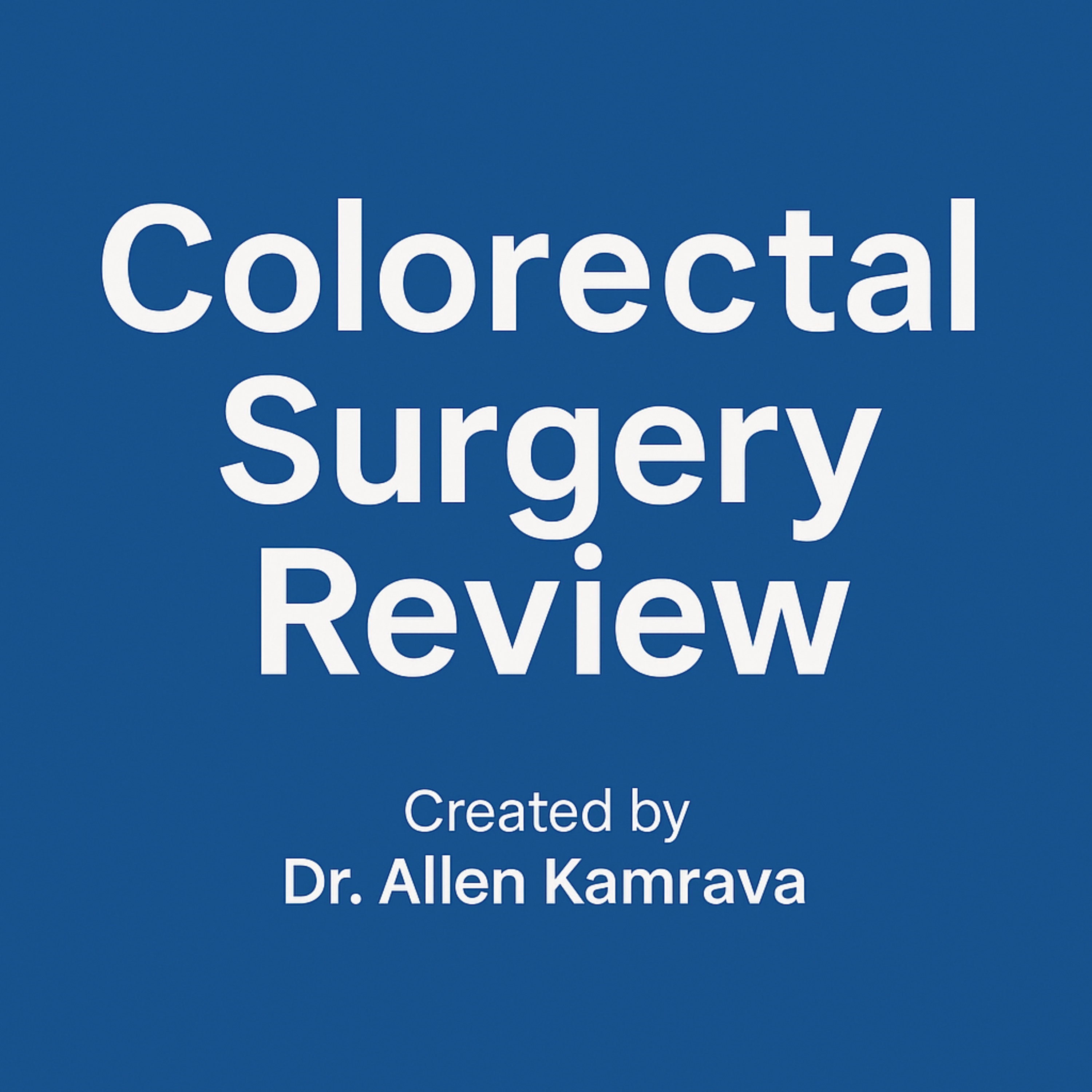
This episode of "Colorectal Surgery Review" provides a comprehensive guide to hemorrhoidal disease for clinicians, with a focus on details relevant for board exams and clinical practice. The hosts emphasize that hemorrhoids are normal anatomical structures (vascular cushions) and only require treatment when they become symptomatic.Key topics covered in the episode include:Anatomy and Classification: The podcast stresses the critical distinction between internal and external hemorrhoids based on their position relative to the dentate line.Internal hemorrhoids are proximal to the line, have visceral innervation (making them insensitive to pain), and are graded on a scale from I to IV based on their degree of prolapse.External hemorrhoids are distal to the line, have somatic innervation (making them painful), and are not graded.Diagnosis: Diagnosis is primarily clinical, based on a thorough history and physical exam, which must include a digital rectal exam and anoscopy. A key takeaway is that any patient over 45 with rectal bleeding or other alarm symptoms requires a colonoscopy to rule out malignancy, as this is a common reason for missed cancer diagnoses.Treatment: The approach to treatment is stepwise and depends on the type and grade of the hemorrhoids.Medical Management: This is the foundation of treatment for nearly all patients. It includes increasing dietary fiber and fluid intake, avoiding straining, practicing good hygiene (like sitz baths), and using short-term topical medications.Office-Based Procedures: These are effective for symptomatic grade I-III internal hemorrhoids. The main options discussed are rubber band ligation (RBL), energy ablation (like infrared photocoagulation), and sclerotherapy.Surgical Management (Hemorrhoidectomy): This is reserved for patients who fail other treatments or have advanced (grade III-IV) or complicated (e.g., strangulated) disease. The podcast details several techniques:Excisional Hemorrhoidectomy: Considered the "gold standard" for its low recurrence rate, with discussion of both the closed (Ferguson) and open (Milligan-Morgan) techniques.Stapled Hemorrhoidopexy: Noted to have less initial pain but a significantly higher rate of recurrence and the risk of rare but severe complications.Doppler-Guided Hemorrhoidal Artery Ligation (HAL): A less invasive surgical option, but may also have a higher recurrence rate than excisional surgery.Postoperative Care: A multimodal, narcotic-sparing approach to pain management is emphasized, using techniques like pudendal nerve blocks with long-acting anesthetics (liposomal bupivacaine), NSAIDs, and stool softeners to ensure a smoother recovery.Special Populations: The episode concludes by discussing tailored management strategies for patients who are pregnant, have Crohn's disease, are immunocompromised, or have portal hypertension.
No persons identified in this episode.
This episode hasn't been transcribed yet
Help us prioritize this episode for transcription by upvoting it.
Popular episodes get transcribed faster
Other recent transcribed episodes
Transcribed and ready to explore now
3ª PARTE | 17 DIC 2025 | EL PARTIDAZO DE COPE
01 Jan 1970
El Partidazo de COPE
13:00H | 21 DIC 2025 | Fin de Semana
01 Jan 1970
Fin de Semana
12:00H | 21 DIC 2025 | Fin de Semana
01 Jan 1970
Fin de Semana
10:00H | 21 DIC 2025 | Fin de Semana
01 Jan 1970
Fin de Semana
13:00H | 20 DIC 2025 | Fin de Semana
01 Jan 1970
Fin de Semana
12:00H | 20 DIC 2025 | Fin de Semana
01 Jan 1970
Fin de Semana